In the current educational climate, school approaches, and especially those relating to marking and feedback, are driven by a few key factors:
- A desire to achieve Progress 8 success*
- Advice and guidance offered by "expert" or "Outstanding" schools
- A need to comply with the expectations (and perceived expectations) of the inspection regime
- The need for middle managers to carve out a purpose for themselves**
So here's the rub. If schools want to achieve the first aim, the following drivers are often counter productive.
* I am not going to discuss the reductive nature of the first educational goal, though that in itself plays a major part here too. Nor will I be dealing with the impact of a narrowly target driven system which means that some schools are in the habit of changing their policies more frequently than I change my socks. Indeed, some schools I have worked in have been so malleable in their policy approaches to teaching that they have become almost invertebrate. In the course of five years in one school we shifted from a focus on Kagan groups and peer marking, to flipped classroom, to next-step marking, to triple marking, to digital marking, to purple pens of progress, without ever stopping to think about the impact of any of these approaches.
** I could write a whole blog on the rise of the purple pen as a gateway pass to Deputy Head status, but I think I might leave that for another day
Bad Advice and Poor Models
As people have been pointing out all week - good feedback does not mean detailed written marking on every child's work. Yet, if we look at some of the "Outstanding" schools and "Teaching Schools" which have been set up as beacons of excellence, we see such policies being advocated. This "Outstanding" Teaching School for instance says:
- "Teachers will provide varied and effective feedback and development points for students to help them realise their potential by making them active partners in their own learning. Time must be given in lessons to allow students to respond to feedback and improve their work"
- "Milestone-marking: a minimum of one formally assessed piece of work per half term and one major assignment per term, usually directly linked to the reporting system, to be marked in detail (in relation to clearly defined and explained learning objectives/success criteria for that piece of work) with a detailed constructive comment. Allocate time when planning lessons, for pupils to read your detailed comments for this type of marking and to ask questions about it; or to write their own response to your comments. There should be evidence of marking and feedback as seen during learning walks and formal lesson observations. It is an expectation that Faculty and programme leaders will ensure that this is the case."
This school has not been formally inspected since 2007 so it seems somewhat remiss of the DfE to allow it to advise other schools to follow such policies. (see http://www.harrogategrammar.co.uk/content/uploads/2015/04/Learning-21.01.15.pdf and http://www.harrogategrammar.co.uk/content/uploads/2014/02/Policy_AssessmentRecordingReporting23.01.13.pdf)
Another "Outstanding" school has a marking policy which demands extended written feedback in a rainbow of colours: http://www.rossettschool.co.uk/parents/policies/marking/ (last inspected in 2010)
The Ofsted Factor
But the problem doesn't stop there. In every school I have been to, there has always been someone with the job to read Ofsted inspection reports and pull out and apply key approaches deemed necessary to attain the elusive "Outstanding" grade. Yesterday I suggested that Ofsted, through their reports, has been key in encouraging schools to implement poor marking practices. When I mentioned this, I was promptly slapped down by Ofsted's Sean Harford.
@HarfordSean A good example of a policy responding to a recommendation from Ofsted (2013) https://t.co/tu35XfmbV6 pic.twitter.com/O2yBOalBhA
— Alex Ford (@apf102) October 15, 2016
I have attached a full document containing my analysis at the bottom of this post, however I have pulled out a few illustrative examples to show here.
From July 2015:
- “Improve the overall quality of teaching by: gaining greater consistency in the school’s approach to marking and feedback, so that pupils have time to correct errors and follow up the advice given to them to help improve their work.”
- “A detailed analysis of students’ work and inspectors’ checks on the work in students’ books show that the quality of marking is too variable. Teachers do not always check students’ work regularly or offer specific guidance on how work should be improved. Even where marking provides good advice and guidance, for example in some English and mathematics books, some teachers do not check that students have acted to improve their work, and this hampers students’ progress.”
- “The whole-school approach to marking and assessment is followed by all staff. Inspection evidence shows that pupils are being given opportunities to respond to teachers’ comments in their books and folders. However, in too many of the books seen, pupils’ responses were either superficial or incomplete.”
- “Marking is erratic. A significant proportion of teachers do not follow the school’s marking policy. They do not mark students’ work regularly and accurately, or include comments to show students how to improve their work and require them to make corrections.”
- “The presentation of work in pupils’ books is improving. Leaders have focused on improving the quality of feedback teachers provide to pupils. Consequently, more detailed and frequent marking can be seen throughout the school, in line with the school’s policy. Pupils know where they have gone wrong and what they need to do to improve their work.”
- “Teachers provide regular feedback on pupils’ work. Pupils respond well to precise advice when it is given. Where pupils offer an extended response, this helps them make progress in their learning. Marking of spelling and grammar is helping pupils improve the accuracy of their written work.”
A plea
What has become abundantly clear is that schools are getting very mixed messages about marking. I would love to see teachers freed up to mark effectively and to choose their approach to marking. However, those efforts are hampered by:
- "Outstanding" schools peddling their cumbersome marking policies to other schools.
- Ofsted failing in their duty to properly inspect "Outstanding" schools who are driving academy chains and the like.
- Ofsted continuing to endorse cumbersome marking approaches or criticise the lack of detailed written feedback.
| analysis_of_20_ofsted_reports.docx |

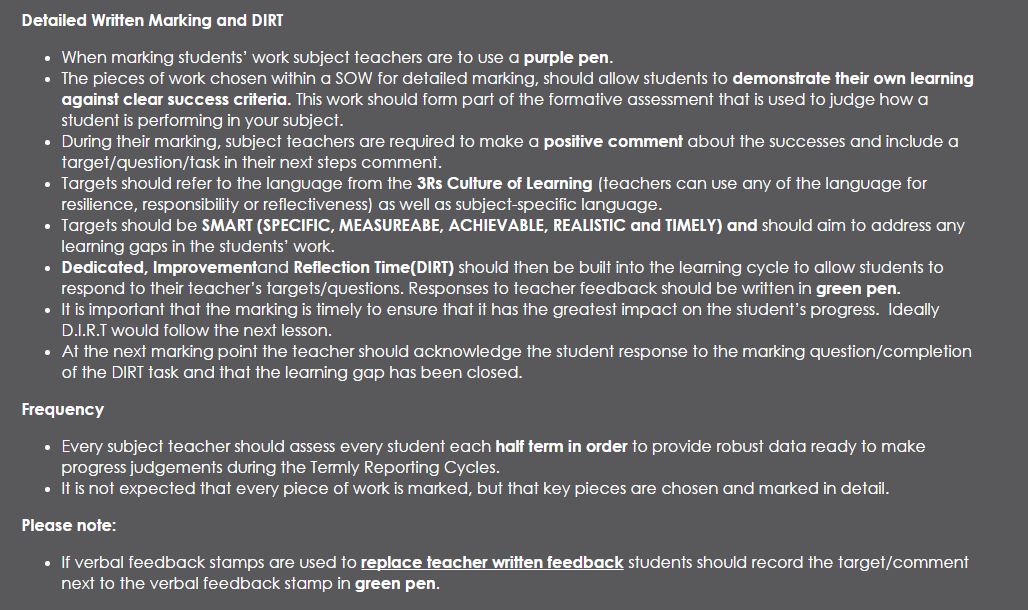
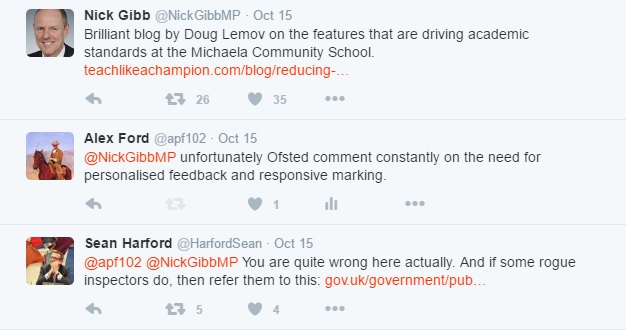
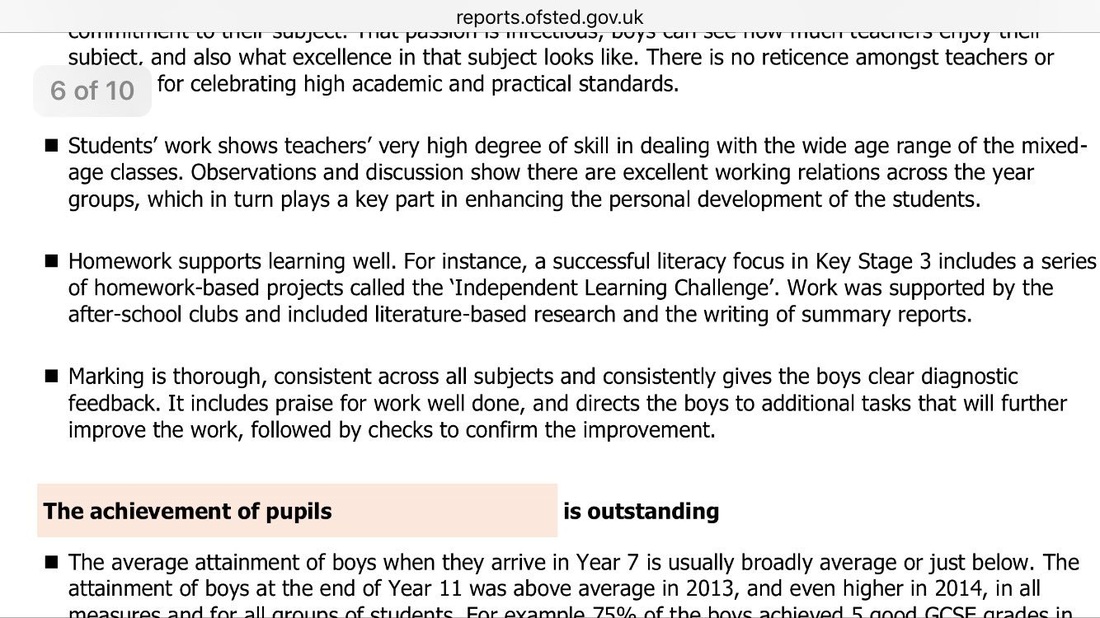
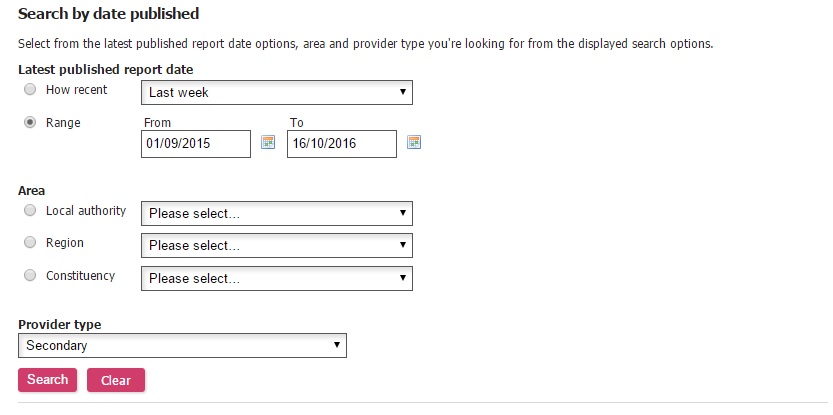
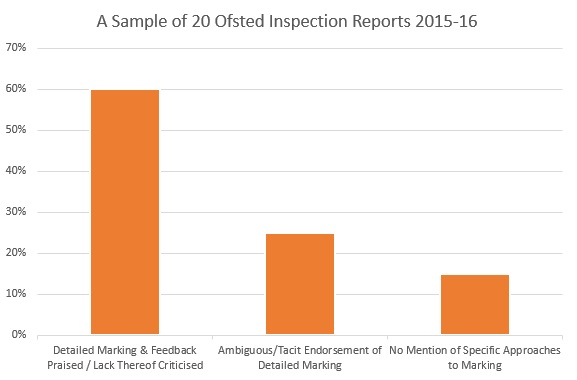



 RSS Feed
RSS Feed
